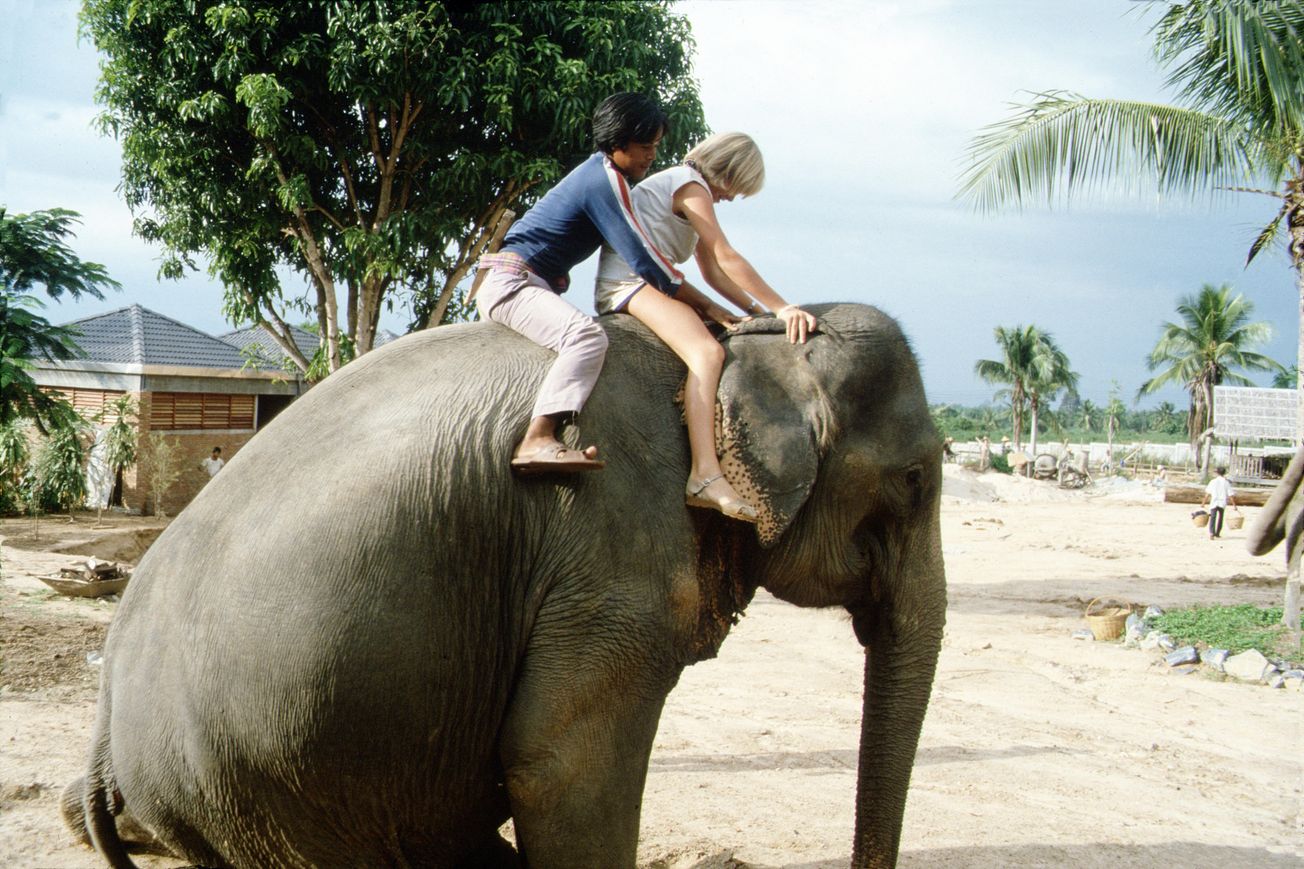By Alice Oliver 4th year French and Portuguese
Alice Oliver revels the shocking true story behind the elephant you rode on your gap year.
For many visiting south-east Asia, riding an elephant remains at the top of their to-do list. Across Thailand, Sri Lanka, Cambodia, Laos, Nepal and parts of India, elephants form a key element of the tourism industry. They perform in circuses and give rides to paying customers.
Asian elephants are highly intelligent animals with a wide variety of behaviours close to those of humans, including grief, compassion, play, memory and language. In the wild, they live in complex social structures of females and calves, while male elephants live in isolation from the herd. Calves have a strong bond with their mothers and stay with her for years.
However, in the tourism industry elephants are torn away from their social structures and forced to work in hostile environments. The work they do is monotonous and repetitive, providing little stimulation for such intelligent creatures. Elephant riding is particularly harmful; in some attractions, elephants are forced to carry up to four tourists at a time, damaging the spine and even internal organs.
Not only is the work itself harmful, but captive elephants are often kept in poor conditions in enclosures which are too small for them. They are kept in short chains, dehydrated, overworked, and underfed, causing deep physical and psychological trauma. Training is often cruel; elephants are beaten and stabbed with bull-hooks, knives and spears. Consequently, captive elephants are subject to an array of illnesses, including infections, swollen backs and depression, and are susceptible to premature death.
According to a 2016 World Animal Protection report, Thailand uses roughly twice as many elephants for tourism purposes as all the other implicated countries combined. In 2016 alone, captive elephants in Thailand gave rides to almost 13 million people. Young elephants are often captured from the wild in neighbouring Myanmar and can fetch up to $60,000 dollars.
Baby elephants, both those born in captivity and those captured from the wild, are subjected to a process called phajaan or ‘crushing-the-spirit’. In this process, a calf is taken away from its mother, squeezed into a cage and tied down, then starved and repeatedly beaten. The calves are subjected to this torture until they become meek and easy to train. Once a calf has been broken, it can then be taught to perform a range of unnatural acts, from dancing to painting to throwing darts. They are punished if they fail to follow orders. While wild elephants are protected under law in Thailand, those in captivity are given no such protection. There are no welfare standards, no regulations regarding their health and safety. They are completely at the mercy of their trainers (known as mahouts), who are often underpaid and maltreated themselves.
Paying to ride an elephant is not only directly damaging to the health of the animal involved, but equally supports a cruel and corrupt industry. As long as people continue to pay for such experiences, the cycle of abuse and death will continue.
Fortunately, the market is changing as more people search for an alternative, ethical way to engage with wildlife. In 2016 TripAdvisor announced it would stop selling tickets for activities involving contact with wild animals, including elephant riding. In the same year, Thailand set up an elephant database, and began to increase policing of the border with Myanmar. Moreover, there has been an increase in recent years in the number of sanctuaries offering an alternative type of elephant tourism. Sanctuaries such as The Surin Project in Thailand and The Mondulkiri Project in Cambodia provide a more natural experience, where tourists can observe elephants in a natural setting, but do not directly interact with them.
Featured image: flickr / Antoine 49
Have you ever ridden an elephant? Tell us about your experience!









